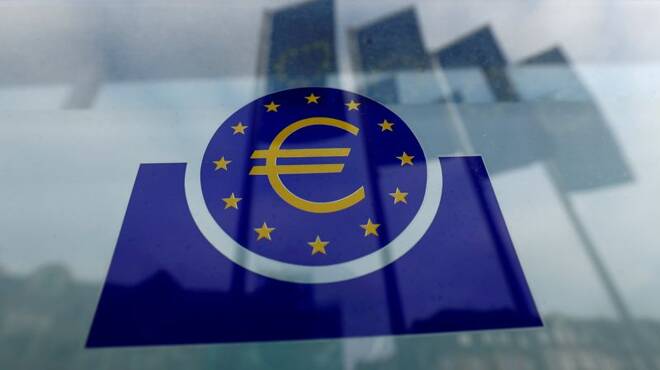Advertisement
Advertisement
German 5-yr bond yields post biggest drop since March as growth fears mount
By:
By Yoruk Bahceli (Reuters) - Euro zone bond yields fell on Thursday after data showed business activity in the bloc slowed more than expected in June and Germany triggered the alarm stage of its emergency gas plan, adding to concerns over global growth.
By Yoruk Bahceli
(Reuters) -Germany’s five-year bond yield staged its biggest one-day drop since March 1 on Thursday as business activity data disappointed and Germany’s decision to trigger the alarm stage of an emergency gas plan stoked global recession fears.
Across the euro zone and the United States, bond yields slid.
They have risen sharply in recent weeks in the face of red-hot inflation and aggressive central bank rate hikes, but on Thursday recession fears gripped markets.
S&P Global’s flash euro zone composite purchasing managers’ index dropped to 51.9 in June from 54.8 in May, indicating significantly slower growth in activity. Economists polled by Reuters had expected a reading of 54.0.
U.S. business activity also slowed considerably in June, resulting in a gauge of new orders contracting for the first time in nearly two years.
Benchmark bond issuer Germany’s five-year borrowing costs ended the day around 24 bps lower at 1.16%, its biggest daily drop since March 1.
Germany’s action on gas is the latest escalation in tension between Europe and Russia and signals to companies and households that painful cuts are likely to be on the way. It deepens fears around growth and a potential recession.
British inflation data and U.S. Federal Reserve chairman Jerome Powell’s comments the bank is committed to bringing inflation under control even at the price of an economic downturn had already added to nervousness.
“The PMIs are responsible for the last leg lower in bond yields,” said ING senior rates strategist Antoine Bouvet.
“Prior to that, we got increasing recession warnings, not least from Powell yesterday …Commodity prices are also easing, which is allowing bonds to function as safe havens as well.”
Germany’s 10-year bond yield tumbled over 19 bps to 1.44%, and touched its lowest in nearly two weeks earlier in the session.
The move follows a 14-basis-point drop in the yield on Wednesday, setting it for its first weekly drop since mid-May.
Italy’s 10-year bond yield fell to as low as 3.449%, a two-week low .
“I still think it’s difficult for yields to be sustainably lower when we haven’t got inflation data yet peaking, but it is a precursor to what we think we’re going to get more of towards Q4, when the economy starts slowing down,” Mizuho rates strategist Peter McCallum said.
Money markets also pared back bets on rate hikes from the European Central Bank. They price in around 153 bps of hikes by December, compared with the expectation of 170 basis points before Thursday’s data.
The ECB will raise its deposit rate above zero for the first time in a decade in September, with a 50 bps move taking it to 0.25%, most economists polled by Reuters predicted.
(Reporting by Yoruk Bahceli; additional reporting by Dhara Ranasinghe and Lucy Raitano; editing by Barbara Lewis, John Stonestreet and Andrew Heavens)
About the Author
Reuterscontributor
Reuters, the news and media division of Thomson Reuters, is the world’s largest international multimedia news provider reaching more than one billion people every day. Reuters provides trusted business, financial, national, and international news to professionals via Thomson Reuters desktops, the world's media organizations, and directly to consumers at Reuters.com and via Reuters TV. Learn more about Thomson Reuters products:
Advertisement
